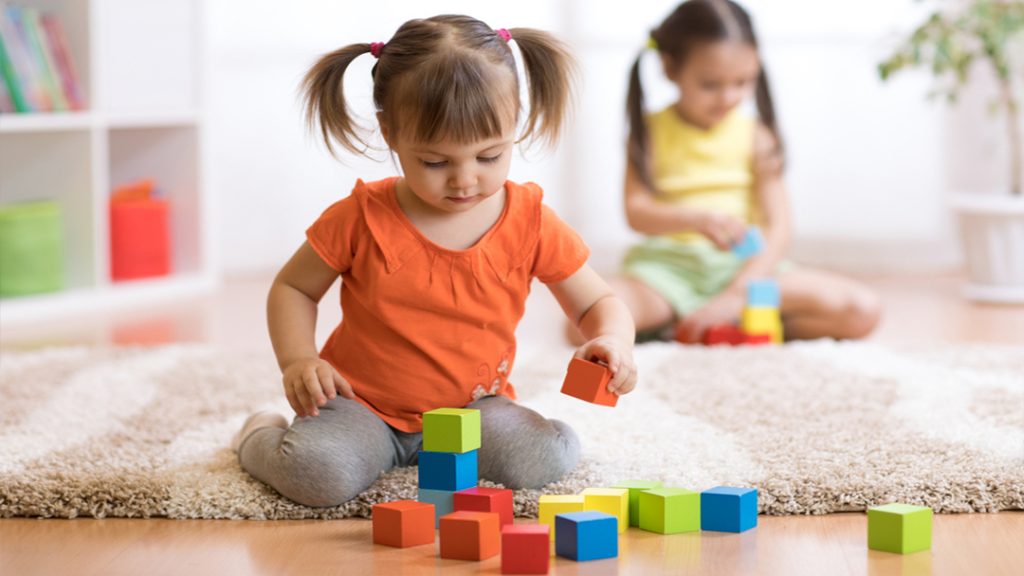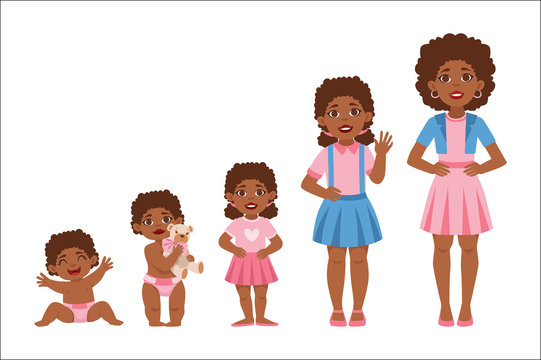Understanding the early childhood development stages is crucial for anyone involved in nurturing the next generation. From birth to age eight, children go through rapid and profound changes that lay the groundwork for their future learning, behavior, and health. This article explores these pivotal stages, offering insights into the specific milestones and challenges that define each phase of a child’s growth.
Early childhood development encompasses a range of physical, cognitive, emotional, and social changes. Knowing what are the developmental stages of childhood can empower parents, educators, and caregivers to provide the appropriate support and interventions at each stage. This support is vital as it can significantly influence a child’s ability to achieve full potential in later life.
Our focus will extend from the newborn phase through to the transition into school age, covering how each stage contributes to a child’s foundation for future success. Whether it’s developing motor skills and language in the toddler years or enhancing social and emotional skills as they approach school age, each stage builds upon the last in a complex yet fascinating progression.
By the end of this guide, you will have a clearer understanding of the stages of early childhood development and the key activities that can foster optimal growth during these formative years. Let’s delve into the science and strategies that support healthy development and prepare children not just for school, but for life.
The Significance of Early Development
Understanding the early childhood development stages is paramount for fostering long-term educational and psychological health in children. These initial years are formative in establishing the foundation for cognitive, emotional, and social growth. During this critical period, experiences in a child’s environment interact with their biological makeup to shape brain architecture. This neurodevelopmental process influences everything from language acquisition to emotional regulation and social interactions.
Positive early experiences, such as nurturing care and stimulating learning opportunities, can accelerate cognitive development and enhance a child’s ability to process and apply knowledge as they grow. Conversely, negative experiences can hinder these developmental processes, potentially leading to long-lasting effects on learning and behavior. By recognizing and supporting early childhood development stages, caregivers and educators can provide the right tools and environments to promote healthy growth across all domains of a child’s development.
Infancy (Birth to 2 years)
The first two years of life are a period of astonishing growth in all areas of a baby’s development. In the realm of early childhood development stages, infancy is characterized by rapid physical, cognitive, and emotional changes. Motor skills development begins with basic reflexes and progresses to more coordinated movements. By six months, most infants can roll over and sit without support, and by twelve months, many are starting to walk or take their first steps.
Language acquisition also starts early, with cooing and babbling evolving into single words and simple phrases by the age of two. Social interaction is evident as infants respond to human faces and voices, particularly recognizing and bonding with their parents and caregivers.
Caregivers can significantly support these developmental milestones through interactive activities. Regular playtime can enhance motor skills, while talking, reading, and singing to infants boost their language acquisition. Responsive caregiving, which involves attending promptly to the infant’s needs and emotions, fosters secure attachment and social development. By providing a safe environment that stimulates their senses and encourages movement, caregivers play a crucial role in helping infants navigate the initial stages of early childhood development, setting the foundation for future learning and growth.

Toddler Years (Ages 2-4)
The toddler years, spanning ages 2 to 4, are a critical period in early childhood development stages. During this phase, toddlers exhibit significant advancements in self-awareness, language complexity, and preliminary problem-solving skills, marking crucial milestones in the childhood stages of development.
Self-Awareness: Toddlers begin to recognize themselves as separate from others, which is evident in their increasing use of “I” and “me” in their vocabulary. This burgeoning self-awareness is accompanied by a greater display of emotions and a budding sense of personal preferences.
Language Complexity: Language skills take a dramatic leap forward. Toddlers evolve from simple two-word sentences to more complex structures, enabling them to express a broader range of ideas and emotions. This linguistic growth facilitates enhanced communication with caregivers and peers, fostering better social interactions.
Preliminary Problem-Solving Skills: These young learners start to understand cause and effect, which is crucial for problem-solving. Simple puzzles and sorting games help toddlers develop these skills, as they begin to figure out tasks through trial and error and learn from their mistakes.
Creating Nurturing Environments: To support these developmental leaps, it is vital to create a nurturing environment that promotes curiosity and learning. Engaging with toddlers through storytime enhances their language skills, while playtime that includes puzzles and building blocks can boost problem-solving abilities. Consistent routines and positive reinforcement encourage emotional and social stability, providing a secure base for exploration and learning.
By understanding and supporting these developmental milestones, caregivers can greatly enhance a toddler’s growth during these formative years, setting a robust foundation for future learning stages.
Early Childhood (Ages 4-6): Communication and Motor Skills Development
During the childhood stages of development between the ages of four and six, children experience significant advancements in communication and fine motor skills, alongside the commencement of formal education. At this stage, children begin to articulate thoughts more clearly and engage in more complex sentence structures. Their vocabulary expands rapidly, enabling them to express ideas and emotions with greater precision.
Fine motor skills also see marked improvement. Children enhance their ability to perform tasks requiring dexterity, such as cutting with scissors, coloring within the lines, and assembling small objects. These skills are critical as they start formal schooling, where they are expected to write, draw, and participate in detailed activities.
The role of play—both structured and unstructured—remains pivotal during this period. Structured play, guided by adults, introduces the concepts of rules and cooperation, while unstructured play fosters creativity and independent problem-solving. Both forms of play are essential, as they contribute significantly to cognitive and social development. Integrating play into daily routines can greatly enhance learning experiences, helping children apply new skills in various contexts and boosting their overall development during these formative years.
Transition to School Age (Ages 6-8)
As children move from early childhood development stages into the school age years of six to eight, they encounter new challenges and opportunities that shape their academic and social skills. This transition is crucial as it introduces children to more structured learning environments and complex social dynamics.
During this period, foundational skills in reading, writing, and mathematics become more pronounced. The emphasis on these academic skills is vital as they form the core of future educational success. Simultaneously, children at this age start to develop deeper relationships with peers, learning the nuances of cooperation, empathy, and competition. These social interactions are critical for developing emotional intelligence and conflict resolution skills.
This stage of early childhood development prepares children not only for the immediate demands of elementary school but also sets the groundwork for navigating more complex social interactions and higher-level tasks. By fostering both cognitive and emotional growth, parents and educators can help children transition smoothly into the next phase of their schooling, ensuring they have the tools they need to thrive.

Understanding the Stages of Early Childhood Development
Throughout this discussion on early childhood development stages, we have explored the critical milestones from birth to age eight. These stages form the foundation of a child’s future, influencing everything from academic success to emotional resilience. Recognizing and supporting these stages is not just beneficial—it’s essential for fostering well-rounded, healthy development.
From the initial steps in infancy, where basic motor and sensory skills are developed, to the complex social interactions and cognitive abilities seen in school-aged children, each stage offers unique challenges and opportunities for growth. The role of caregivers in this journey cannot be overstated. By providing a supportive, enriching environment at each stage, caregivers play a pivotal role in shaping the child’s future.
As we have seen, understanding what are the developmental stages of childhood helps us to tailor educational practices and parenting techniques to meet the evolving needs of young children. By doing so, we enable them to maximize their potential during these formative years.
In closing, it is clear that a deep understanding of the stages of early childhood development is not merely academic. It is a practical toolkit that empowers us to contribute positively to the developmental journey of the young lives we are privileged to influence. Let us commit to being proactive participants in this vital process, ensuring every child receives the nurturing environment they need to thrive.
Leave a Reply